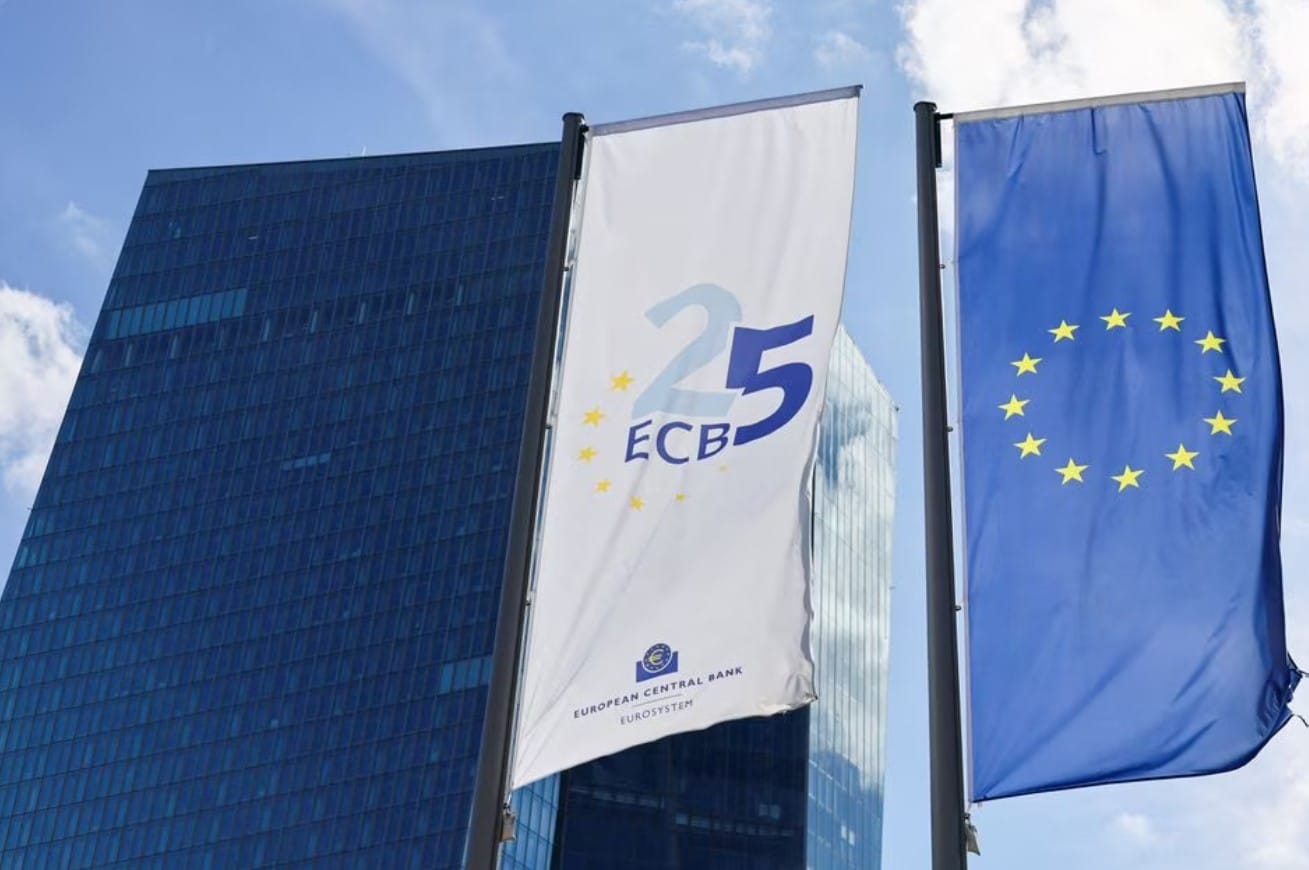The European Central Bank is done hiking interest rates and will stay on hold until at least July next year, according to economists in a Reuters poll, who said there was only a one-in-five chance the central bank hikes again this year.
Last week, the ECB raised its key interest rates for a 10th consecutive time, taking the deposit rate to a record high of 4.00 per cent from a historic low of minus 0.50 per cent in just over a year.
That decision came just days after Reuters reported the central bank would upgrade its 2024 inflation forecast, flipping expectations in favour of a hike from no move.
Although the ECB upgraded its 2024 inflation outlook to 3.2 per cent from June’s 3.0 per cent prediction, the Governing Council signalled an end to its most aggressive hiking cycle on record, given the anaemic economic growth in the euro zone.
All 70 economists in a Sept. 15-18 Reuters poll said policymakers were done hiking and the deposit rate would end the year at 4.00 per cent.
“It will probably be some time before the ECB will describe it as such, but 4.00 per cent is likely to be the terminal rate, in our view,” said Mark Wall, chief economist at Deutsche Bank.
“President (Christine) Lagarde apparently did not want to say rates have peaked… However, the hurdle to a further hike does feel relatively high.”
The probability of at least one more hike this year is 20 per cent, according to the median of 32 respondents. Responses ranged from 5 per cent to 35 per cent.
Interest rate futures are pricing a roughly 25 per cent chance of another increase by year-end.
The ECB did not rule out further hikes and several policymakers said interest rates would have to remain at restrictive levels for some time to bring down inflation currently running at over two times its 2 per cent target.
“Another hike is not our base case, but there is a fair risk a hike could materialise if wage growth and inflation remain strong through December,” said Bas van Geffen, senior macro strategist at Rabobank.
Even though the probability of another hike is low, Lagarde said rate cuts were not part of the conversation yet.
There was no clear consensus among economists on when the first cut would come. But a near 60 per cent majority, 41 of 70, see no easing until at least July and poll medians showed 75 basis points of cuts in the second half of 2024.
When asked what was the bigger risk to their first ECB rate cut, 23 of 38 cited an earlier-than-forecast easing.
But with inflation not expected to reach the 2 per cent target until late 2025, 15 said the first rate cut could come later than they forecast.
“Both alternative outcomes are possible, but the priority of the inflation target means an earlier rate cut requires a drift into a significant recession, which is not our baseline scenario at present,” said Luca Mezzomo, head of macroeconomic analysis at Intesa Sanpaolo.







Click here to change your cookie preferences